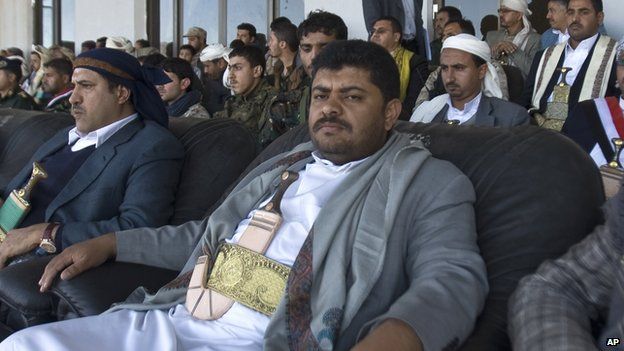Yemen profile - Leaders
- Published

Houthi rebels declared a new government in Yemen in February 2015 after UN-brokered talks to try to resolve a political crisis broke down.
The rebels said a five-member presidential council would replace the president during a period of transition.
They said parliament had been dissolved and replaced by a transitional revolutionary council, headed by Mohammed Ali al-Houthi.
The UN, US and Gulf Co-operation Council refused to recognised to declaration, calling on the Houthis to relinquish control of government institutions.
Both President Abdrabbuh Mansour Hadi and his government resigned in January 2015 after the Houthis tightened their grip on Sanaa.
Yemen has been in political limbo since President Hadi and the government resigned after the Houthis seized the presidential palace in a struggle to tighten control.
President Hadi fled Sanaa for his home city of Aden in February, and in March the Houthis began to advance on southern Yemen.
The instability in the country has raised fears that the conflict there could spread to other countries in the region, as it becomes increasingly apparent that Sunni Saudi Arabia and Shia Iran are fighting a proxy war in Yemen.Saudi-backed forces managed to drive the Houthis out of Aden, allowing President Hadi to return from exile in September 2015, and launched an advance on Sanaa in the face of stiff Houthi resistance.